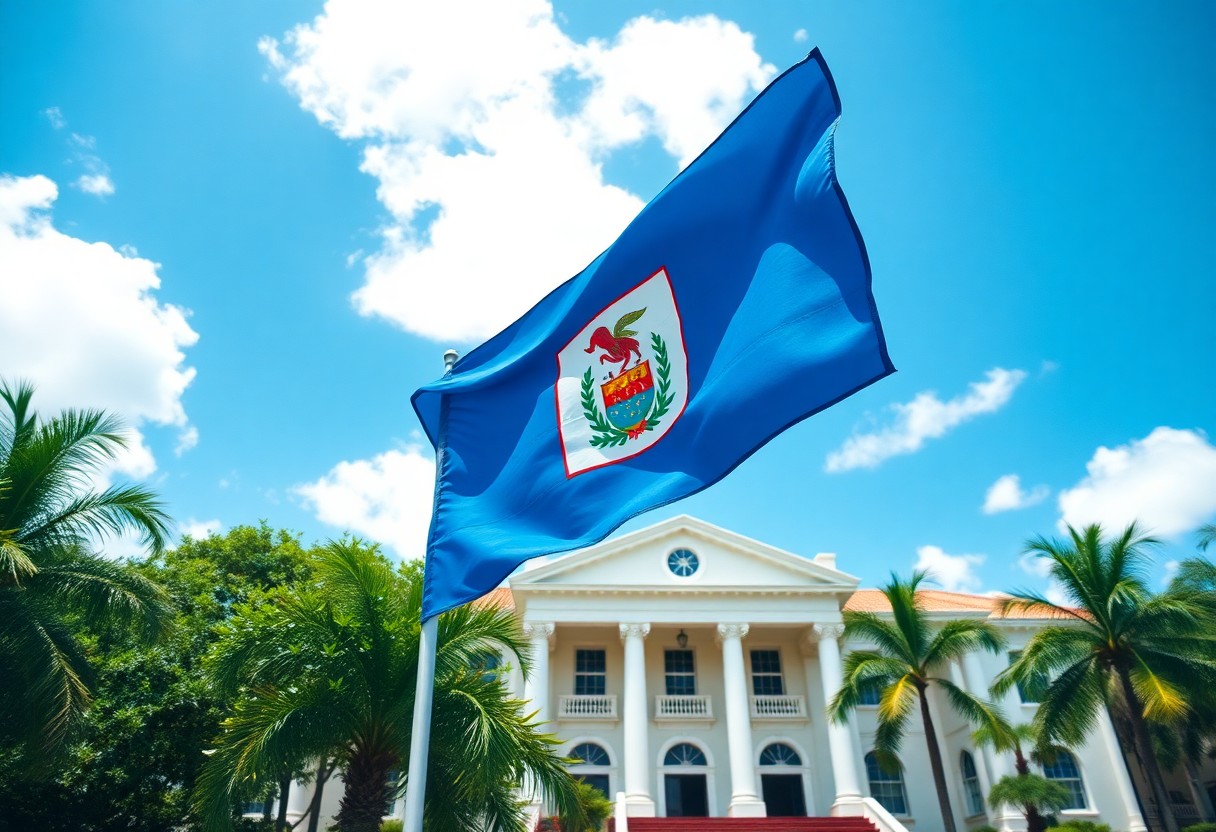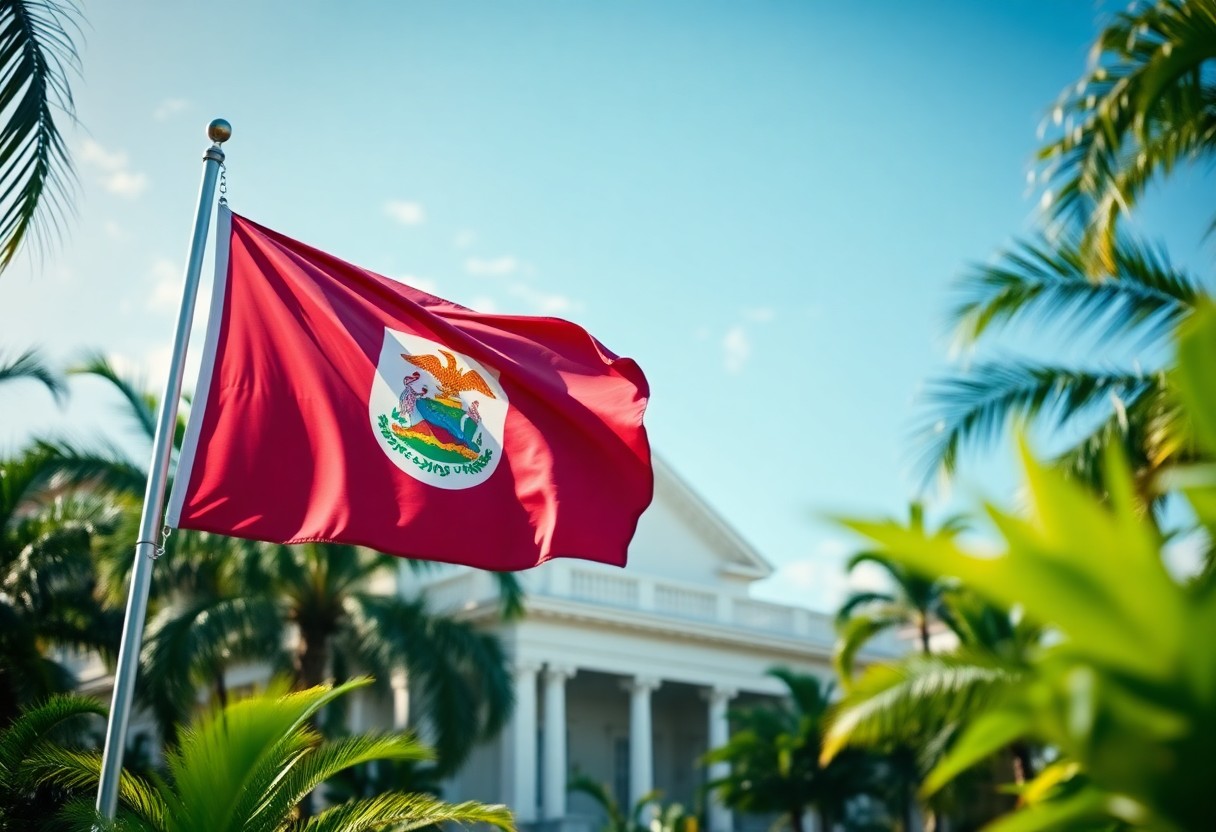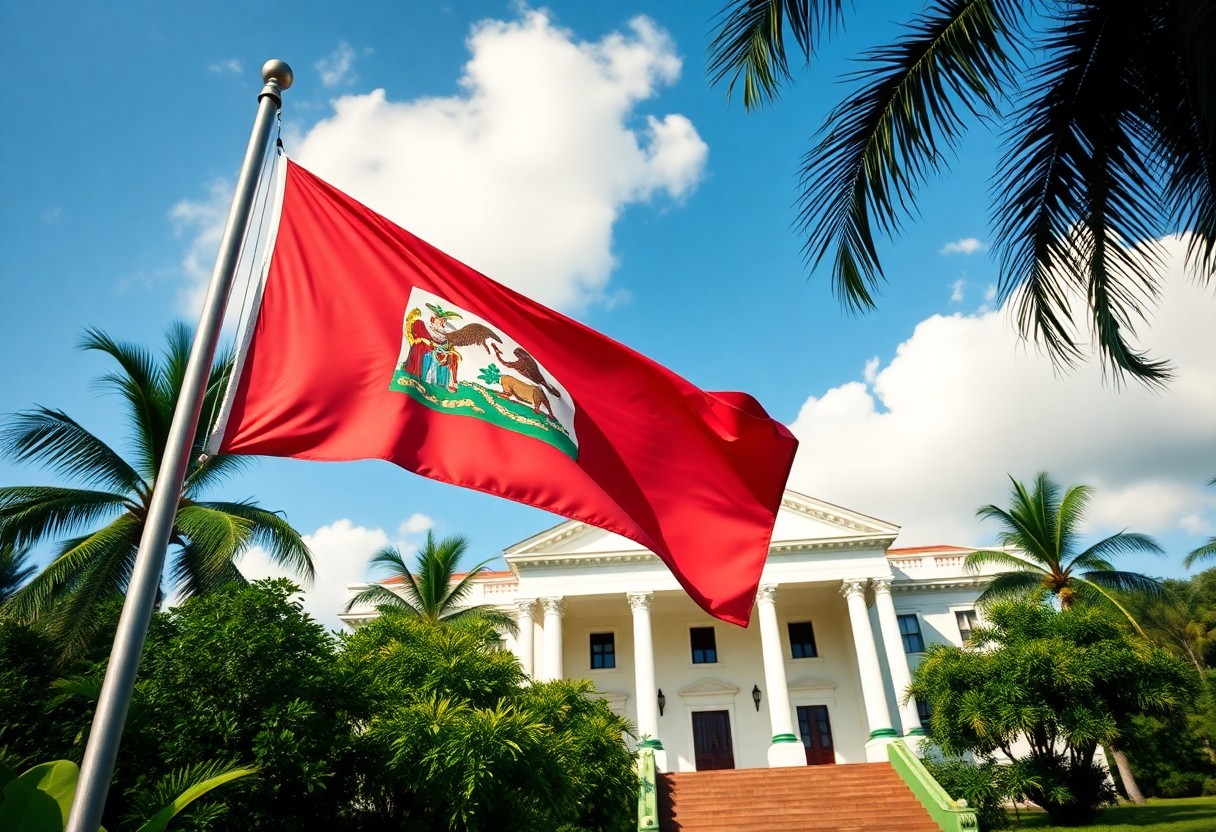Unraveling the Historical Journey of Belize to Independence is essential for understanding the core of Belizean culture and historical narrative. This article will explore the key historical events that shaped the nation's quest for independence. It will spotlight the relentless battles against colonial rule, the significant treaties forged, and the monumental achievement of self-governance realised in 1981. These pivotal moments not only illustrate the perseverance and resolve of the Belizean populace but also highlight the transformative developments that established a democratic Belize. Join us as we delve into the defining milestones that contribute to the national identity of Belize in the present day.

Diving Deep into Belize's Vibrant Pre-Colonial Heritage
Prior to European contact, the pre-colonial era of Belize was distinguished by a rich and diverse array of indigenous cultures and profound legacies. Numerous indigenous communities thrived in the area, with the Maya civilisation being the most notable. These societies established complex social hierarchies, advanced agricultural practices, and extensive trade networks that were innovative for their time. The cultural heritage from this epoch has left an indelible mark on Belize's identity, influencing the course of historical developments that unfolded in the region thereafter.
Celebrating the Remarkable Achievements of the Maya Civilisation
A thorough investigation into pre-colonial Belize must prominently feature the astonishing accomplishments of the Maya civilisations. These ancient societies not only survived but also excelled in various fields such as architecture, astronomy, and agriculture. Visitors and locals alike can explore the breathtaking ruins of Caracol and Lamanai, which stand as enduring symbols of the Maya's sophisticated way of life, illustrating their profound knowledge of urban planning and natural sciences.
Appreciating Belize’s Rich and Diverse Cultural Heritage
At the heart of Belize’s identity is a deep and intricate cultural heritage. This vibrant tapestry is woven from the complex interactions of indigenous, African, and European influences that have profoundly shaped modern Belizean society. The richness of this heritage is vividly reflected in the diverse languages, traditions, and customs that enhance everyday life in Belize, contributing to a unique cultural landscape that is cherished by its inhabitants.
Moreover, heritage is fundamental in shaping Belize’s cultural identity. The architectural wonders of the Maya, alongside their agricultural innovations, continue to resonate in contemporary Belizean society. Additionally, the significant contributions of the African and Creole communities have greatly enriched Belize’s artistic expressions, musical legacies, and culinary traditions. This fascinating amalgamation of cultures fosters a profound sense of belonging and pride among Belizeans, while also serving as a testament to the historical challenges faced by these diverse groups throughout Belize's storied past.
Examining the Era of British Honduras: A Critical Historical Phase
The time when Belize was referred to as British Honduras represents a significant chapter marked by British colonial dominion. Spanning from the 18th century into the mid-20th century, this period witnessed the emergence of a distinct cultural identity heavily influenced by British governance, economic ambitions, and local resistance movements. During this era, crucial transformations occurred within political and administrative structures, ultimately laying the foundation for Belize’s unwavering quest for independence.
A Comprehensive Timeline of British Governance in Belize
Officially designated a British colony in 1862, British Honduras experienced significant advancements, including the implementation of the British legal framework and the development of critical infrastructure. Over the years, the colony saw considerable resistance from the local populace, particularly highlighted by the 1934 labour riots, which played a vital role in galvanising the Belizean people’s support for self-governance.
The Enduring Effects of British Colonial Influence on Belizean Society
Above all, the legacy of British colonial rule has left a lasting imprint on Belize’s societal and governance structures. The introduction of the English language, along with legal frameworks and educational institutions, has been pivotal in modernising the nation. While this colonial relationship presented various challenges, it also established crucial foundations for the democratic governance that Belize enjoys in contemporary times.
Furthermore, the impact of British colonialism is evident in numerous facets of Belize’s society today. The English language remains the official medium of communication, facilitating both local and international interactions. Additionally, the legal and governance frameworks established during colonial rule have played a critical role in shaping Belize's current legal system. Nevertheless, it is vital to acknowledge that this influence was accompanied by the exploitation of resources and cultural imposition, which have left lasting effects on Belizean demographics and national identity. Understanding these intricate dynamics is essential for comprehending Belize’s multifaceted journey toward independence.

Charting the Significant Journey to Independence for Belize
Any discussion surrounding Belize’s path to independence must recognise the crucial events that facilitated this monumental change. The journey to liberation involved responding to colonial pressures, nurturing a growing sense of nationalism, and advocating for increased self-determination among the Belizean populace. The mid-20th century marked an upsurge in political activism, which relentlessly laid the groundwork for Belize’s eventual emancipation from British colonial rule.
Honouring the Key Historical Figures in Belize’s Independence Movement
Significant historical milestones along Belize’s path to independence featured influential figures such as George Cadle Price. Acknowledging their leadership and foresight allows us to appreciate how these icons mobilised public support for self-governance, profoundly shaping the future and identity of the nation.
Participating in Negotiations for Self-Governance
During the vital discussions regarding self-governance, representatives of the Belizean populace took the forefront, proposing transformative strategies that would alter the course of history.
With a proactive and determined stance, Belizean leaders actively engaged in negotiations with British representatives about self-governance. These discussions proved to be a pivotal moment, as Belize sought to assert its autonomy in managing its own affairs. The formation of political parties and organised movements was crucial in articulating the demands for change from the Belizean populace. As tensions escalated, the negotiations intensified, reflecting the urgency felt by Belizeans for autonomy. This critical period culminated in numerous constitutional amendments, laying the groundwork for Belize’s eventual independence from colonial oversight.
Key Milestones on the Journey to Independence
A multitude of significant milestones marked Belize’s challenging journey to independence. From early legislative initiatives to momentous events, each milestone played a crucial role in the pursuit of self-determination. As you contemplate these milestones, you will come to understand their profound impact on the nation’s identity and the ongoing struggle for sovereignty.
Notable Legislative Developments Leading to Self-Governance
One of the early legislative advancements was the enactment of the Internal Security Act in 1961. This legislation established a framework for self-governance, allowing a limited degree of autonomy in local governance matters. This pivotal act marked a watershed moment, encouraging Belizeans to actively engage in political processes and advocate for further reforms.
Defining Events from 1964 to 1981 that Shaped Belize’s Political Landscape
In the years preceding Belize’s independence, significant events from 1964 to 1981 played an essential role in shaping the nation’s political landscape. This era witnessed the rise of influential political leaders and nationalist movements, which laid the groundwork for achieving self-governance.
During this transformative time, numerous key events transpired that contributed to Belize’s independence. The 1964 Elections heralded a new phase of political engagement by expanding voting rights to a broader segment of the Belizean populace. The 1969 Belize-Guatemala tension heightened calls for autonomy and unity among citizens. The 1973 Constitution established a more robust governance framework, affording additional rights and liberties to the populace. Ultimately, these developments, alongside the declaration of independence in 1981, defined Belize’s journey toward forging a national identity and self-rule.

Navigating Challenges and Developments in Post-Independence Belize
In the years following its independence in 1981, Belize confronted a series of challenges and opportunities in its efforts to establish a cohesive national identity and effective governance. The nation undertook substantial initiatives to create a stable political framework while promoting economic growth and addressing pressing social issues. Efforts were directed towards enhancing infrastructure, education, and healthcare systems, all aimed at improving the quality of life for every Belizean in this young and evolving democracy.
Understanding the Political Framework of Belize
The political structure is fundamental in shaping the governance of Belize. The country operates as a parliamentary democracy with a clear separation of powers among the executive, legislative, and judicial branches. The Prime Minister heads the government, while the legislative body comprises the House of Representatives and the Senate. This political system fosters regular elections and representation of diverse political perspectives, encouraging active civic engagement among the populace.
The Role of Commonwealth Membership in Belize’s Development
Upon achieving independence, Belize became a member of the Commonwealth of Nations, which has played a crucial role in nurturing international relationships and support. This membership grants Belize access to a network of countries that share similar democratic values, allowing participation in collaborative initiatives across sectors such as education and trade.
A significant benefit of your Commonwealth membership is the opportunity to engage in dialogues concerning regional issues that impact Belize. Participation in this organisation enhances Belize’s global stature while also bolstering connections with other former British colonies. Moreover, Commonwealth nations often extend developmental assistance, which can be vital in addressing local challenges. However, this membership also necessitates a commitment to upholding democratic principles and human rights, ensuring that Belize continues to evolve as a respected member of the global community.
Confronting the Contemporary Challenges Facing Belize
It is vital to acknowledge that Belize is grappling with a multitude of contemporary challenges that significantly influence its stability and growth. These challenges encompass economic concerns, social issues, governance, and environmental factors that collectively shape the nation's future trajectory. Addressing these pressing matters is critical for sustaining progress, as they directly affect the daily lives of Belizeans and the overall development of the country.
Investigating Economic Challenges in Modern Belize
Modern economic challenges in Belize include elevated unemployment rates and an over-dependence on tourism as a primary economic driver. These factors contribute to economic instability and have a direct impact on the livelihoods of local enterprises. Fluctuations in global tourism trends can profoundly affect Belize’s economy, placing additional strain on government resources and public services.
Tackling Social Issues within Belizean Society
In Belize, social challenges such as poverty and inequality persist as significant hurdles. Issues like limited access to education and healthcare services exacerbate disparities among various communities, adversely affecting the overall quality of life for Belizeans.
Additionally, it is crucial to understand that social challenges in Belize are intricately connected to prevailing economic conditions. The high rates of poverty directly hinder access to essential services, and inequalities in education can obstruct future opportunities for many. Nevertheless, community initiatives and government programmes are actively addressing these concerns, instilling a sense of hope and resilience within the population. By strengthening social ties and investing in education and healthcare, Belize can progress toward achieving a more equitable society for all its citizens.
Reflecting on the Transformative Journey of Belize to Independence
Reflecting on Belize’s journey to independence allows one to appreciate the significance of the key historical milestones that shaped the nation. The ramifications of the 1964 and 1973 constitutional reforms laid the groundwork for self-governance. The importance of the 1975 Treaty of Friendship with Guatemala in addressing long-standing territorial disputes also cannot be overstated. Ultimately, the official independence achieved on September 21, 1981, marked a transformative chapter in Belize’s history, allowing every Belizean to celebrate their national identity and sovereignty. Each of these milestones played a pivotal role in shaping Belize into the nation it stands as today.
Common Inquiries Regarding Belize’s Independence
What Major Historical Events Contributed to Belize Gaining Independence?
Belize's journey to independence was characterised by a series of significant events. The movement for independence gained momentum in the 1940s, culminating in 1981 when Belize officially emerged free from British colonial rule. Key milestones during this period included the establishment of a constitutional government in 1964 and the organisation of self-governing elections.
Who Were the Influential Figures Integral to Belize’s Independence Movement?
A number of key individuals played crucial roles in the independence movement. George Price, the leader of the People’s United Party, was central in advocating for Belize's independence. Other notable figures included Philip Goldson and various members of political organisations that actively campaigned for self-determination.
How Did the British Government Respond to Belize’s Push for Independence?
The British government initially displayed resistance to the idea of independence but eventually acknowledged Belize’s readiness for self-rule. This shift occurred as they observed the increasing political awareness and activism among Belizeans. British officials collaborated with local leaders to facilitate a smooth transition towards independence.
The Article How Belize Gained Independence: Key Historical Milestones appeared first on Belize Travel Guide
The Article Belize Independence: Key Historical Milestones Explained Was Found On https://limitsofstrategy.com




Comments are closed